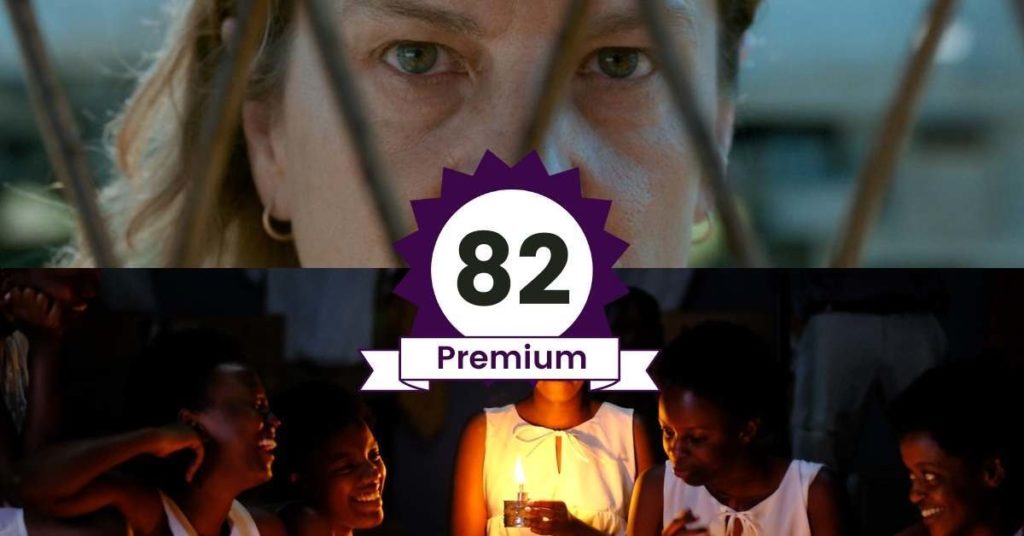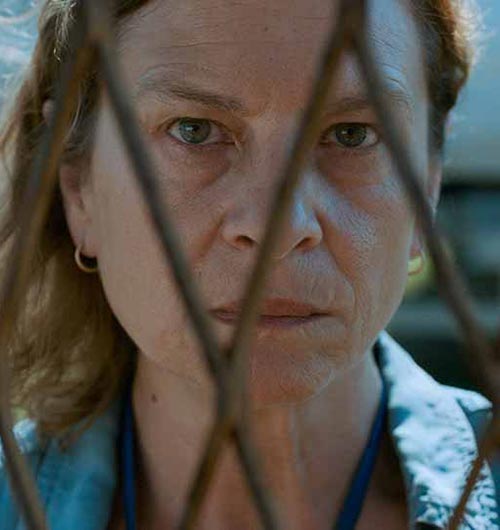Jasmila Žbanic’s Quo Vadis, Aida is one of the best films of the year. On this episode, we discuss it in context of Atiq Rahimi’s Our Lady of the Nile, another film approaching the theme of genocide with tremendous empathy towards the human cost rather than being a spectacle of suffering.
This episode is a Seventh Row members exclusive, as are all episodes older than six months. Click here to become a member.

This episode features Editor-in-Chief Alex Heeney, Executive Editor Orla Smith, Associate Editor Brett Pardy, and special guest Andrew Kendall.
Quo Vadis, Aida (Jasmila Žbanic, 2020)
This is 1995, in the heat of the war between the Serbian and Bosnian populations, and the Serbs are encroaching on Srebrenica in increasingly violent ways. Writer-director Jasmila Žbanic, who lived through the war, drops us straight into the action with this scene of negotiation between the mayor, who is concerned for the safety of his townspeople, and the UN soldiers, who assure him that the Serbs “have been issued an ultimatum” that will keep Srebrenica safe. Through Aida’s panicked eyes, we watch this hopeless conversation unfold as the soldiers naively reason that the Serbs won’t attack because the UN has warned that they will face “serious consequences” if they do.
This is the prologue to Quo Vadis, Aida?, a harrowing retelling of the genocide of the people of Srebrenica that grapples with the complicity of those who were ‘just doing their job.’
Read the rest of Orla’s review of the film from TIFF 2020
Quo Vadis, Aida will be available to stream in the US on Letterboxd from March 8-14. It is available to stream in the UK on Curzon.
Our Lady of the Nile (Atiq Rahimi, 2019)
Title cards separate Atiq Rahimi’s Our Lady of the Nile into three parts: ‘Innocence’, ‘Sacred’, and ‘Sacrilege’. Set at an elite girls boarding school in 1970s Rwanda, the film begins by plugging us into an innocent utopia through startling gorgeous drone shots of the lush greenery surrounding the girls’ school… However, the film takes place during a military coup d’état that increased violence against the Tutsis, eventually leading to the Rwandan genocide which killed millions, and this knowledge is a dark shadow over the girls’ joyful exploits. All of a sudden, Our Lady of the Nile takes a dark turn when prejudicial comments that a group of Hutu girls make toward the two Tutsi girls at the school turn into insidious lies — a precursor to threats of horrific violence.
Read the rest of Orla’s review of the film from TIFF 2019
Show notes
- Read Orla’s interview with Jasmila Žbanic
- Read Orla’s interview with Atiq Rahimi
- Follow Andrew on Twitter @DepartedAviator
- Read Andrew’s review of Quo Vadis, Aida in Stabroek News
- Quo Vadis, Aida led our TIFF 2020 critics poll for best film. See the other choices here.
- Read Brett’s review of Igor Drljača’s documentary The Stone Speakers, also on the Bosnian genocide
- Atiq Rahimi is one of over 70 directors featured in our new ebook, In Their Own Words: Fiction Directors. Pre-order your copy now at https://theirownwords.ca (book available March 12)

Become an expert on Quo Vadis, Aida?
Our resource page on Quo Vadis, Aida? is the invaluable resource on the film. Discover historical context, a director bio, link to all our articles and podcasts, and further reading.

